10 Teen Movie Jokes From the Past That Would Raise Eyebrows Today
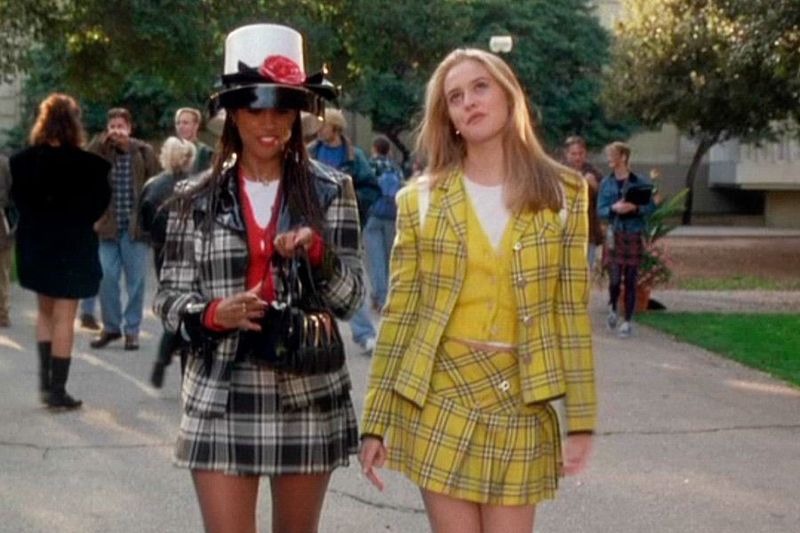
Remember those teen movies we all laughed at in the past? Many of those comedies used jokes and scenes that would make audiences cringe today instead of laugh. As our society has evolved, so has our understanding of respect, consent, and inclusion. Looking back at these once-popular films shows just how much our sense of humor has changed over the years.
1. Clueless (1995)
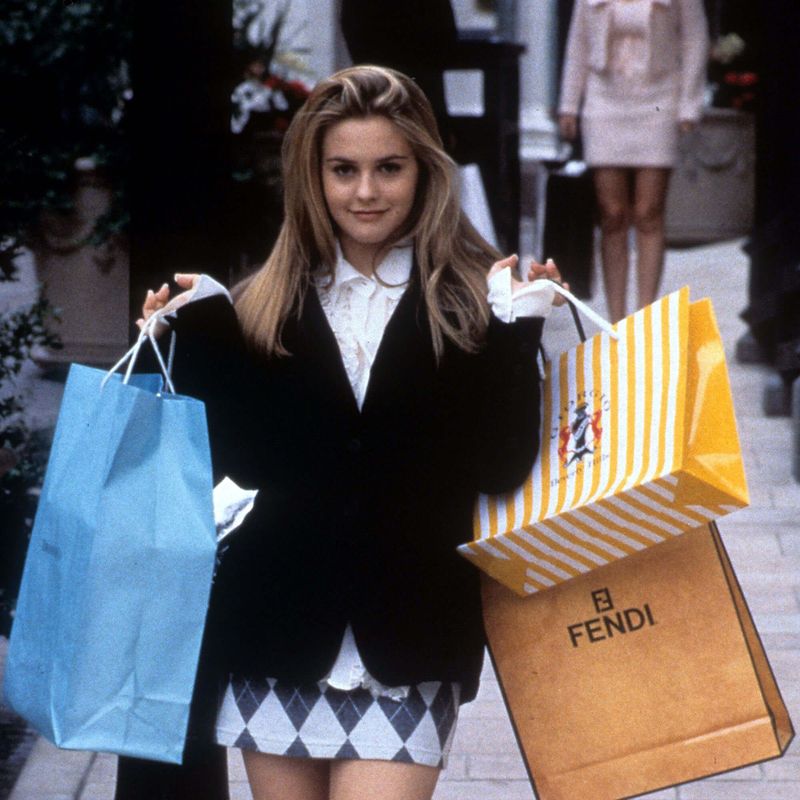
Cher Horowitz’s designer-filled closet and computerized outfit selector once seemed aspirational, but now read as tone-deaf celebrations of extreme wealth. The film’s casual classism appears whenever Cher interacts with those less fortunate, treating them as projects rather than people.
The matchmaking subplot, while charming on the surface, involves manipulating teachers and friends for Cher’s entertainment. Her meddling is portrayed as well-intentioned rather than invasive.
Most jarring to modern viewers is how the film glorifies consumerism as a personality trait. In today’s world, where economic inequality is a pressing concern, Cher’s shopaholic tendencies and casual spending feel less like quirky character traits and more like uncomfortable displays of privilege.
2. She’s All That (1999)
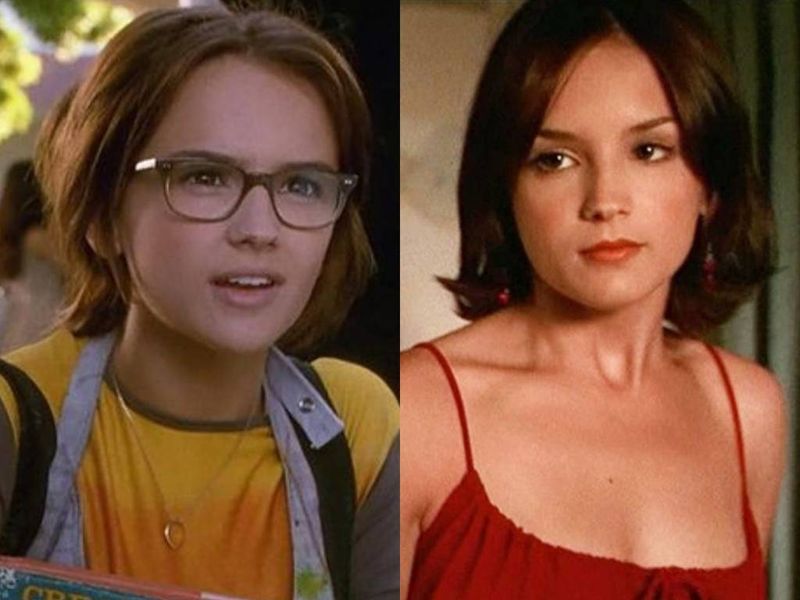
“She’s All That” perpetuates the harmful notion that a girl’s worth increases dramatically once she removes her glasses and changes her clothes. The entire bet revolves around transforming an “ugly duckling” into prom queen material – as if Laney’s intelligence and artistic talents weren’t valuable enough.
The film suggests women need male validation to discover their true beauty. Worse, it frames deception as romantic, with Zack hiding the fact that their relationship began as a cruel wager.
What once seemed like a charming transformation story now reads as shallow and demeaning to anyone who doesn’t fit conventional beauty standards.
3. Never Been Kissed (1999)
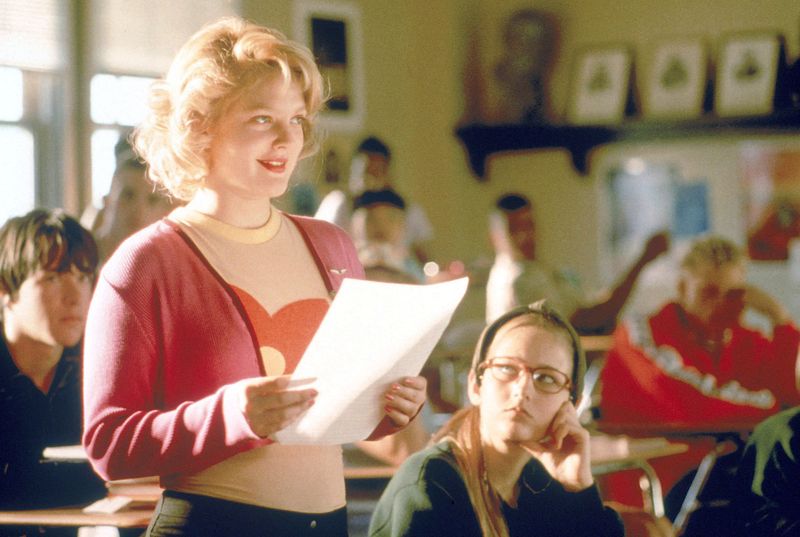
“Never Been Kissed” features 25-year-old Josie posing as a high school student while developing feelings for her teacher. The film treats this potential relationship as sweet rather than acknowledging the troubling power dynamics at play.
Mr. Coulson believes he’s falling for a teenager, yet the movie frames this as endearing instead of concerning. The big kiss at the end celebrates a relationship that began under completely false pretenses.
Watching an adult infiltrate a high school, befriend minors, and pursue a teacher-student romance (even if she’s secretly an adult) creates scenarios that feel deeply uncomfortable by today’s standards.
4. The Breakfast Club (1985)
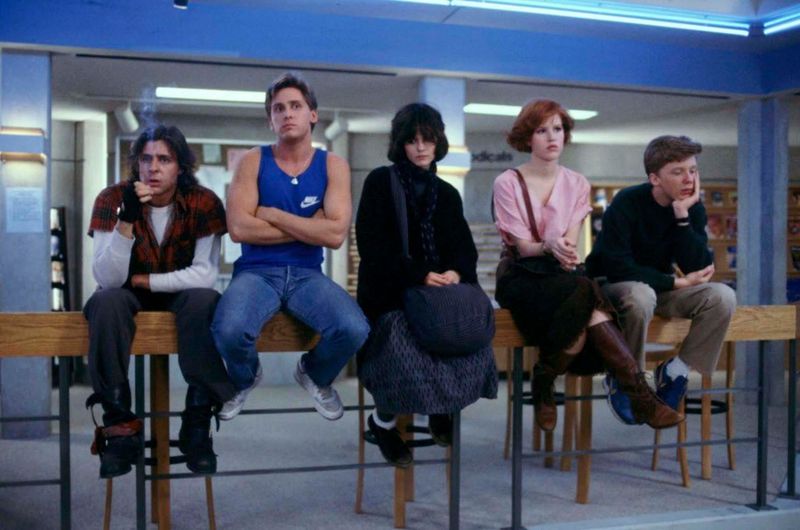
John Hughes’ beloved classic “The Breakfast Club” contains moments that modern viewers find jarring. Bender’s relentless harassment of Claire includes crawling under a table to look up her skirt – behavior portrayed as rebellious rather than predatory.
The film’s treatment of stereotypes sometimes reinforces rather than challenges them. Brian’s suicidal thoughts are briefly addressed then quickly abandoned, while Allison’s transformation suggests she needs to conform to be accepted.
Even the teacher’s threatening behavior toward students would trigger serious concerns today, not just serve as an antagonistic plot device in a coming-of-age story.
5. Revenge of the Nerds (1984)
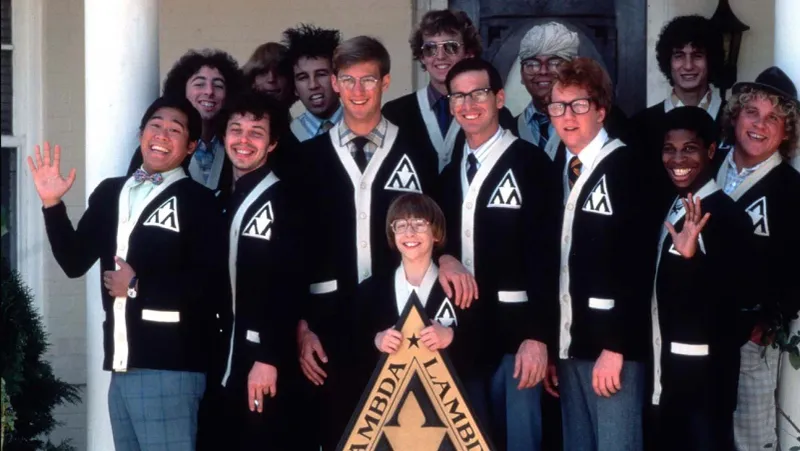
“Revenge of the Nerds” crosses serious ethical lines when Lewis impersonates a jock to have sex with his girlfriend – a scenario that constitutes sexual assault by deception. The film frames this violation as a triumphant moment rather than a criminal act.
Racial stereotypes abound, with characters like Takashi serving as one-dimensional punchlines. The film’s treatment of its female characters ranges from objectification to outright voyeurism with hidden cameras in sorority houses.
Though intended as an underdog story about nerds finding empowerment, their methods of revenge include numerous behaviors that are recognized today as harassment and assault.
6. Sixteen Candles (1984)
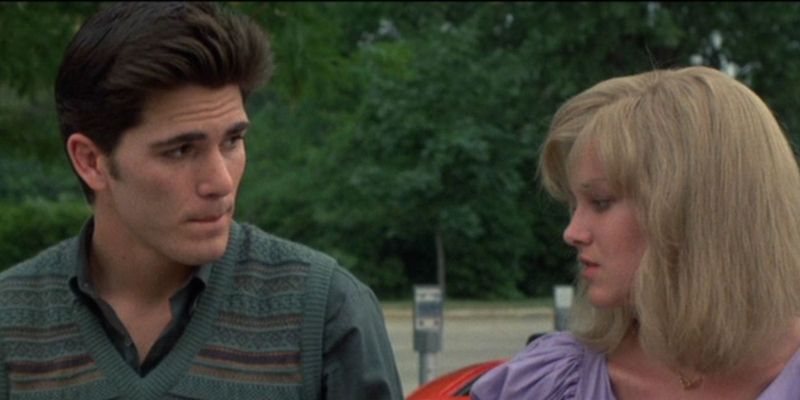
Long Duk Dong from “Sixteen Candles” represents one of cinema’s most infamous racial caricatures, complete with gong sound effects and broken English. This character would never make it past a modern writer’s room.
Jake Ryan, the supposed dream boy, casually offers his drunk girlfriend to another boy with the line “she’s so blitzed she won’t know the difference.” This horrifying suggestion of taking advantage of an incapacitated girl is never addressed as problematic.
Meanwhile, Samantha’s underwear becomes public property when passed around among boys. The film treats these violations as harmless fun rather than the serious consent issues they represent.
7. Mean Girls (2004)
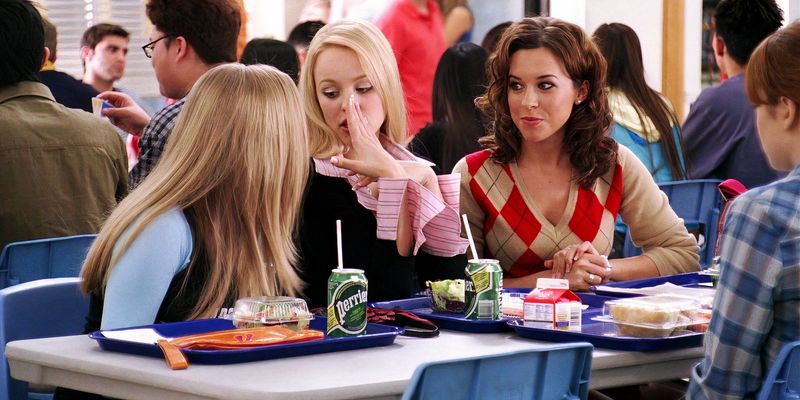
While “Mean Girls” brilliantly satirizes high school politics, some of its humor hasn’t aged gracefully. Coach Carr’s abstinence-only education (“…..you will get pregnant and die”) mocks important conversations about sexual health rather than offering meaningful commentary.
The film’s treatment of Karen as the “dumb blonde” relies on laughing at someone with potential learning disabilities. Damian being introduced as “too gay to function” reflects the casual homophobia that was still acceptable in mainstream comedies in 2004.
Regina’s body-shaming and the Burn Book’s vicious attacks on girls’ appearances would likely be handled with more nuance in today’s more body-positive climate.
8. 10 Things I Hate About You (1999)
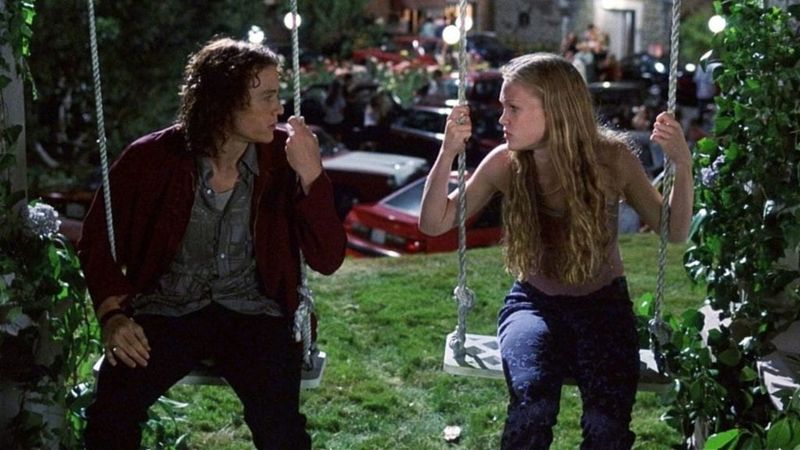
In “10 Things I Hate About You,” the witty banter and sharp comebacks made it a favorite. However, some scenes portrayed dismissive attitudes towards mental health and feminist issues.
The film’s comedic approach to these sensitive topics might not resonate with today’s audiences, who are more attuned to the nuances of such subjects.
Despite its charm, the movie’s humor sometimes danced on a fine line, reflecting the era’s perspectives. Its iconic status remains, but the comedy could be seen as outdated in the context of today’s social awareness.
9. Easy A (2010)
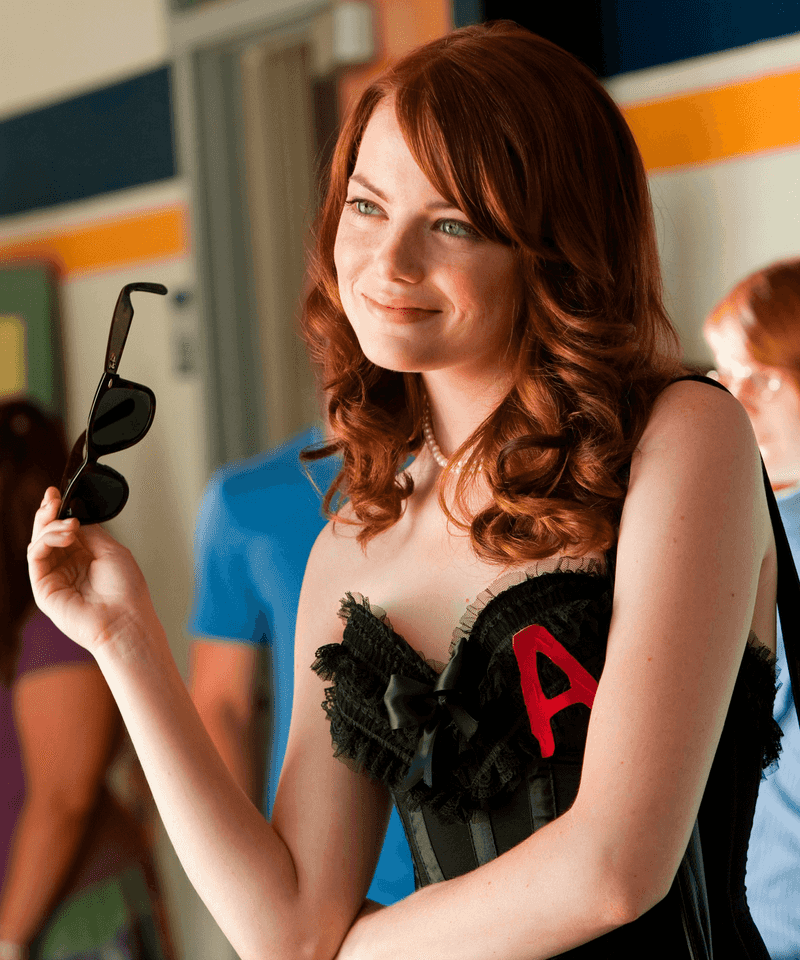
“Easy A”, the 2010 teen comedy starring Emma Stone, was a sharp, satirical take on high school gossip and the double standards placed on girls’ reputations.
Its witty dialogue and self-aware narration made it a fan favorite, especially for its modern spin on The Scarlet Letter. But watching it today reveals a few dated elements.
The film leans heavily on stereotypes, including portrayals of queerness that rely on secrecy and shame for laughs. Its treatment of slut-shaming feels more performative than empowering by today’s standards of intersectional feminism. While still entertaining, “Easy A” doesn’t fully hold up in a post-MeToo world.
10. The Perks of Being a Wallflower (2012)
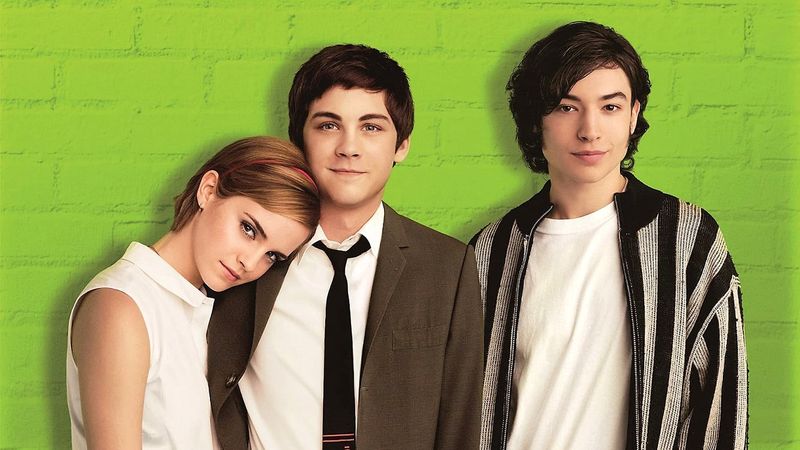
In “The Perks of Being a Wallflower,” the complexities of teenage life unfold through Charlie, a shy and introspective protagonist. The film captures the essence of high school with humor that sometimes treads on sensitive themes.
A scene where humorous banter includes a joke on mental health raises eyebrows today. The humor, intended to lighten the mood, may not align with current views on mental illness.
This shift in comedic taste reflects a broader awareness and sensitivity we embrace now, focusing on inclusivity and empathy. In this light, comedic elements from the film might be reevaluated today.

Comments
Loading…